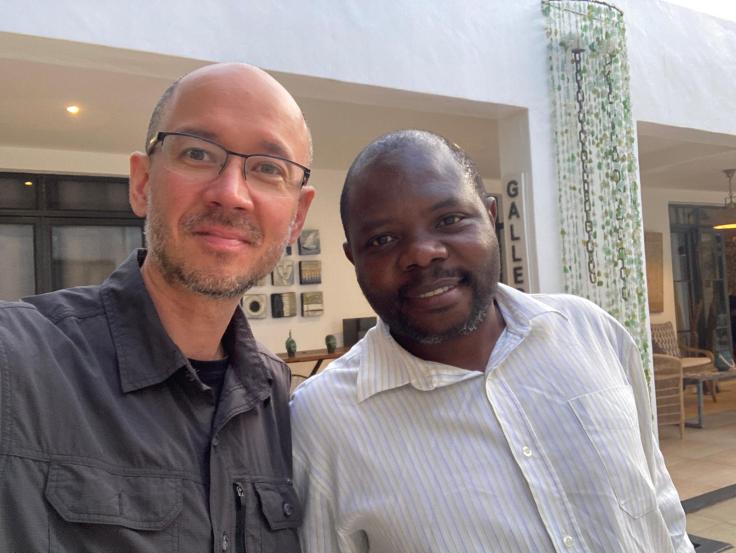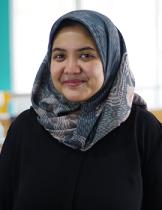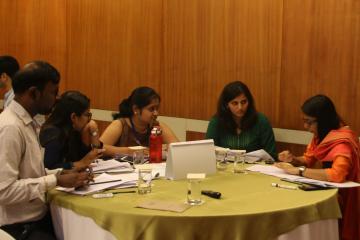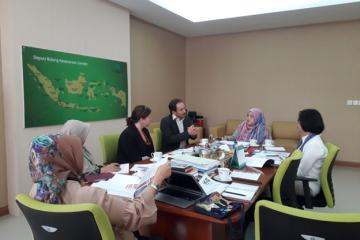
Setting up international research collaborations for success

International research collaborations—those composed of principal investigator (PI) teams based in different countries—are increasingly common and have the potential to strengthen the capacity of research teams and the quality of research projects. As with any research collaboration, successful international collaborations require planning and coordination. This blog post discusses the benefits of international coauthorship and offers suggestions for researchers interested in pursuing such collaborations, drawing on the experiences of J-PAL affiliated researchers and research staff.
Research collaborations often begin organically through researchers’ existing networks. For example, PhD students may coauthor with their advisors, with other students in their department, or with graduate students or professors they meet at conferences. Breaking out of one’s familiar social and professional circles to find coauthors from different backgrounds, disciplines, and countries can create opportunities for more innovative research informed by each coauthor’s unique experiences, perspectives, and expertise. Researchers from or based in the study location (for shorthand, “local” researchers) are likely more familiar with the existing knowledge and policy priorities in the study location. Therefore, studies that include local researchers on the PI team can generate evidence that is more engaged with the local context, in addition to promoting knowledge transfer around research techniques.
from michigan to malawi
J-PAL affiliated professor Dean Yang (University of Michigan) recently began collaborating with Malawian researcher Robertson Khataza (Lilongwe University of Agriculture and Natural Resources) on a J-PAL-funded pilot study which evaluates the effects of an international remote work intervention for new graduates in Malawi. Dean and Robertson met one another through J-PAL’s African Scholars Program, where Dean served as Robertson’s mentor for a proposal development grant for another employment intervention in Malawi. Dean describes his collaboration with Robertson as “a powerful partnership.” Robertson brought local market expertise in Malawi, and Dean was able to tap University of Michigan career resources for the intervention and put together a package of training materials to help Malawian graduates write CVs, compelling cover letters, and prepare for Zoom interviews. This collaboration facilitated mutual learning and the development of an innovative intervention that could expand access to well-paying jobs for workers in low- and middle-income countries.

From Virginia to India
A similar collaboration emerged through J-PAL’s Indian Scholars Program. After completing a pilot project on maternal mental health and nutrition, J-PAL Indian Scholar Chitwan Laji (Indian Institute of Management Kozhikode) connected with J-PAL affiliated professor Sandip Sukhtankar (University of Virginia) to collaborate on a gender-sensitive policing project in Punjab, which will evaluate interventions related to community outreach and engagement for gender-responsive policing, empowerment of female police officers, and alternative dispute resolution.
Benefits of international coauthorship
Researchers from and/or based in the study location or context can make valuable contributions to all aspects of the research process, including research design, implementation, analysis, writing, and dissemination. International researchers (i.e., those neither from nor based in the study location) can bring transferable experience from running research projects in other settings as well as complementary skills and training. In this section, we highlight some of the ways in which local researchers can be especially well-positioned to add value to projects. These are just some examples though, as researchers across all backgrounds and locations have valuable and unique knowledge, experiences, and skills that will shape the ways in which they can best contribute to a research team
During the inception stage, local researchers can help contextualize intervention ideas to form policy-relevant studies. Their understanding of the local context and needs faced by the population can lead to more creative, relevant, and feasible ideas for new research questions, intervention designs, and approaches to outcome measurement, while international researchers may bring sectoral expertise and experience with randomized evaluations. Furthermore, governments are often concerned with the generalizability or adaptability of research ideas formulated in a different context. Local researchers’ familiarity with the government’s challenges, such as timeline, logistical, and political constraints, can increase the likelihood that research findings will be useful for policymaking.
When studies begin to take place, local researchers can more effectively communicate with local partners, especially if foreign coauthors do not speak the local language. With a better understanding of local culture, they can better engage in difficult conversations, like resolving challenges during a study’s implementation, leading to more effective communication and successful projects.
When research is complete, local researchers can play a key role in supporting efforts to promote research findings in policymaking by providing suggestions to contextualize research findings to offer policy-relevant recommendations. This can be complemented by international researchers’ contributions to research paper writing and dissemination through seminars, conferences, and journals, thereby helping other researchers find and build on the work. Through these and other pathways, collaborations between local and international researchers can greatly enrich the research.
Setting expectations
In coauthored research studies—regardless of the makeup of the PI team—each author often plays different roles in the research design, analysis, and writing. For example, one coauthor might be an expert in the methodology being used in the paper while another may be an expert in the theoretical literature relevant to the study. In this case, the former might develop the study’s empirical strategy and conduct the statistical analysis while the latter conducts the literature review and develops the theory for the paper. In some cases, seniority may influence co-authorship expectations. For example, a more senior researcher might expect to provide access to grant funding and offer high-level advice but spend less time managing the implementation of the research study, conducting the analysis, or writing up the results.
To ensure smooth and successful collaboration, it is best to set clear expectations about the role and contributions of each coauthor prior to beginning any collaboration. Some specific areas to consider setting expectations include:
- Who will be included as coauthors? It is helpful to discuss coauthorship among the research team at the start of a collaboration to make sure everyone is on the same page. In the social sciences, decisions about coauthorship are not always clear cut, and each researcher may have different preferences and expectations. For example, if a research assistant or research manager completes a significant portion of the analysis and writing for the paper, will they be credited as a coauthor? How about partners who facilitate access to administrative data and secure collaborations with relevant agencies necessary for study implementation but do not take part in the analysis and writing? What about someone who helped come up with the initial research idea but was no longer involved in the project once it began? Some researchers have recently begun advocating for broader co-authorship inclusion criteria to share credit with more junior research staff who made significant and substantive contributions to the research. Several J-PAL affiliated professors, including Marcella Alsan, Abhijit Banerjee, Emily Breza, Arun Chandrasekhar, Esther Duflo, and Ben Olken; Joe Doyle and Amy Finkelstein; and Gautam Rao and Frank Schilbach have recently coauthored with research associates or research managers.
- Author ordering: Research teams also have discretion in determining author order when submitting a paper to a journal. The general norm in economics is for alphabetical order. However, some economists determine author order based on the significance of each author’s contribution to the work (and this can be even more common in other social science disciplines such as political science). In other cases, research teams decide to randomize author order. Discussing author order at the start of a project can help prevent conflict or disappointment when it is time to submit a journal.
- Overall breakdown of responsibilities, including how much each author will be expected to contribute to project management, data analysis, and writing: It can be helpful to delegate specific responsibilities to each coauthor in advance. For example, one coauthor may take responsibility for overseeing grants, IRB approvals, and research protocols, while another may be designated as the point person to liaise with the field implementation team. In addition, it is helpful to determine how the research team will communicate with one another (e.g., email, Slack, WhatsApp, etc.), how frequently the research team will meet, and which phases of the research will require the most time from each coauthor. When delegating responsibilities, it is also helpful to set expectations in advance around which types of issues each coauthor can decide unilaterally and which types of issues require input from all coauthors. Our resource for researchers new to randomized evaluations has additional guidance on project and team management that can be helpful to discuss amongst the PI team.
- Study timeline and publication goals: Some research studies last a matter of months, while others take many years to complete and publish. Though the time to completion will depend on the scale and complexity of the intervention and data collection, research projects involving field experiments typically take longer to complete than those leveraging existing data to evaluate an intervention after it has taken place. Once a working paper is drafted, time to publication can also vary widely depending on the type of target journal. If targeting a top-tier journal, it may take several years until an article is published, following lengthy peer review processes. Tradeoffs between publication timelines and journal tier can differ for different types of researchers. For example, a tenured professor may be under less pressure to publish quickly, while a PhD student, postdoc, or assistant professor may want to complete a project and publish the paper more quickly to improve their chances of getting hired or tenured. Publication incentives can also vary substantially by country and department. At many economics departments in the United States, the prestige of the journal one publishes in may be relatively more important than the quantity of publications. For example, a paper published in the American Economic Review may count equivalently to multiple publications in lesser ranked journals, and publications in certain journals may not count at all towards a professor’s tenure or promotion case. At other universities, particularly in low- and middle-income countries, or in other fields, all publications in Scopus-indexed journals may count equally. Therefore, professors in these institutions may have more of an incentive to publish more papers more quickly, as opposed to taking on relatively fewer projects but pursuing studies that involve larger-scale original data collection, which can be more time-consuming, expensive, and unpredictable.
- Available resources and teaching loads: In many countries, non-contingent faculty members (equivalent to tenure track in the United States) may have high teaching load and no possibility of course buy-outs, resulting in less time to devote towards research projects and paper writing. For example, faculty members in public universities in Indonesia can be required to teach four courses or more per semester—comparable to teaching loads at liberal arts colleges in the United States. The number of courses faculty members are required to teach increases when the department offers all levels of study (undergraduate, masters, and doctoral degrees) or if the department offers courses that are part of the core curriculum of all students (including those outside of the department). Researchers based in low- and middle-income countries may also have less access to research funding and discretionary research funds that can be used to hire highly skilled research assistants.
Insights from J-PAL Southeast Asia
A key priority of J-PAL Southeast Asia (SEA) is to identify potential Indonesian co-authors to match with J-PAL affiliated professors. In doing so, the team seeks recommendations from J-PAL SEA’s affiliates and scientific directors, host university (University of Indonesia), government partners, and post-doctoral fellows, as well as from discussions with key stakeholders, such as NGOs and donor organizations. J-PAL SEA seeks out local researchers with a background in economics and public policy and demonstrated interest in conducting experimental research. This includes early career academics who may have less experience but have strong potential and motivation to lead randomized evaluations and build relationships with government partners. The team also seeks to address regional disparities in exposure to international collaboration opportunities in Indonesia. In an effort to expand its network of local researchers, J-PAL SEA has, for example, conducted training for academics and students from outside Java, namely in Universitas Syiah Kuala in the far west of Indonesia and Universitas Hasanuddin in Eastern Indonesia.
Once the team has identified a list of potential researchers, the next step is to conduct an initial assessment to better understand their expertise and area of interest as well as experience working with local partners. The team also shares the potential benefits of the collaboration, like opportunities to work with researchers from universities abroad, access J-PAL funding, receive dedicated support from the J-PAL SEA research team for project development and implementation, participate in J-PAL training courses and workshops, and potentially publish the research in highly ranked journals.
J-PAL SEA promotes a coauthorship model that emphasizes mentorship and mutual learning. To date, 41 Indonesian researchers have coauthored J-PAL research studies. Some of these researchers have also launched independent randomized evaluations while continuing their research collaborations with J-PAL affiliates, and several of these researchers have since become J-PAL invited researchers and affiliated professors. Collaborations with the Indonesian government, facilitated by Indonesian researchers, have led to more evidence- and data-driven policymaking to meet the needs of the country’s most marginalized people.
J-PAL’s experience in Southeast Asia and beyond has demonstrated how coauthorships among researchers from different countries can foster more innovation and contextually-grounded research and strengthen the capacity of research teams. International research collaborations, especially those built on principles of mutual learning and equal partnership, will spur the generation of stronger evidence and more informed policymaking, enhancing our ability to tackle critical questions in the fight against poverty together.





